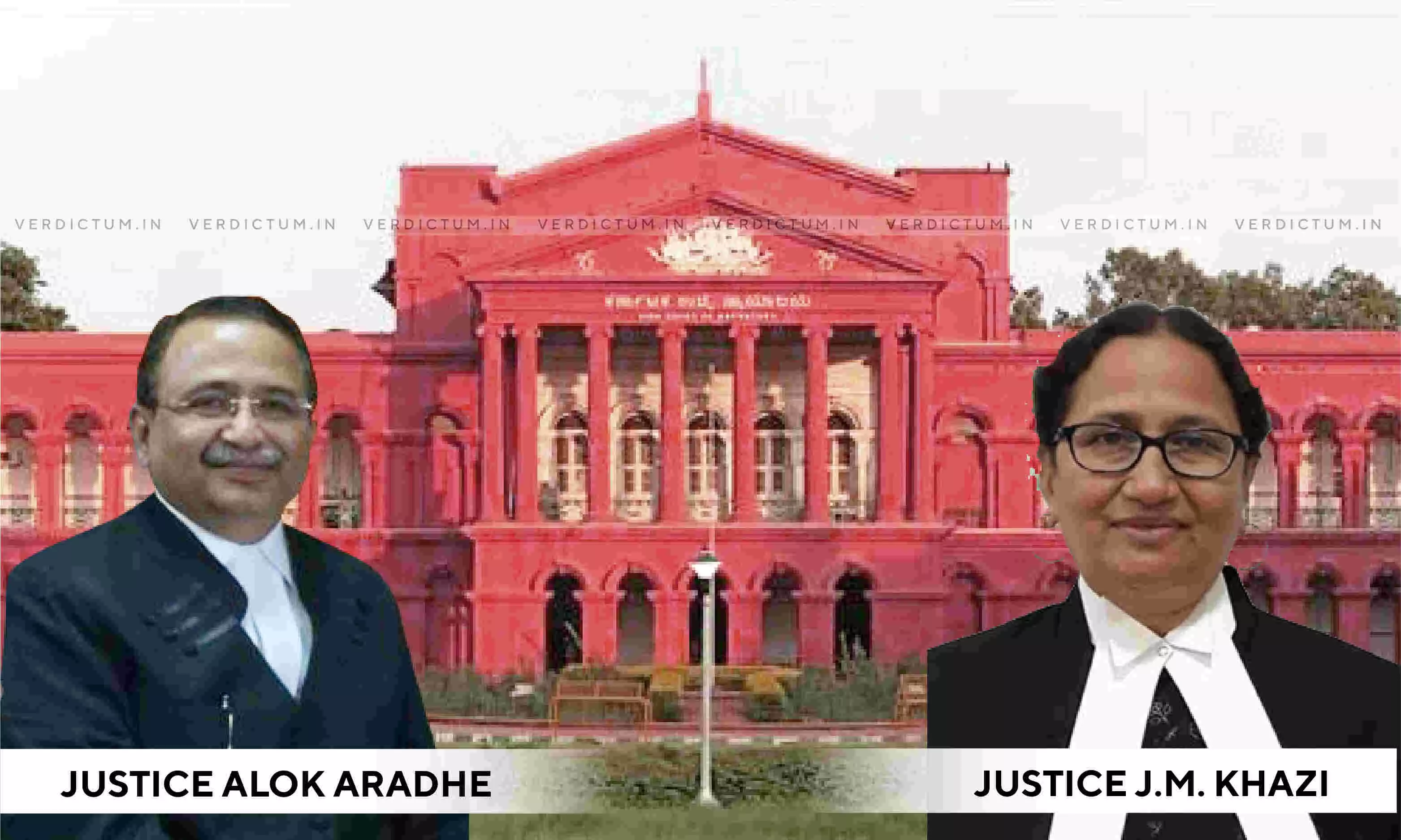
Section 25 Of HMA – Husband Is Able-Bodied Having Capacity To Earn – Karnataka HC Dismisses Appeal For Permanent Alimony
 |
|The Karnataka High Court has held that an able-bodied husband who has the capacity to earn cannot seek permanent alimony from wife under Section 25 of the Hindu Marriage Act, 1955.
The Division Bench of Justice Alok Aradhe and Justice JM Khazi dismissed the appeal filed by the husband who sought permanent alimony from his divorced wife who was taking care of their 15-year-old son.
The Court held –
"A considerable expenditure is required to be incurred for education of the son and the burden of the same has been cast upon the respondent. The appellant is an able bodied person and has the capacity to earn. The Family court therefore, has rightly rejected the petition filed by the appellant under Section 25 of the Act."
In this case, the Respondent-wife had left her matrimonial home in February 1994 prior to the delivery of the child. A son was born to the parties thereafter, however, the Respondent did not return. The Appellant—husband then filed a petition seeking restitution of conjugal rights which was decreed. Aggrieved, the Respondent filed an appeal before the High Court which was dismissed. Despite the dismissal, the Respondent-wife did not join the matrimonial home. Thereafter, the Appellant filed a petition seeking dissolution of marriage and also a Petition seeking permanent alimony from his wife.
The Family Court dissolved the marriage by a decree of divorce, however, dismissed the Petition of the Appellant filed under Section 25 of the Hindu Marriage Act seeking permanent alimony.
Aggrieved, the Appellant-husband approached the High Court.
The Appellant contended before the Court that the Respondent was an Assistant Manager in a cooperative society while the Appellant was a Security guard in the temple on a contract basis, however, lost his job and had no means to sustain himself. It was argued that the Respondent was under an obligation to maintain the Appellant.
While the Respondent argued that she was receiving a monthly salary of Rs. 8,000 per month and had to take care of the son from wedlock who was 15 years old.
The Bench noted, "In determining the issue pertaining to permanent alimony, the status of parties, reasonable wants of spouse, independent income and property of the claimant are the relevant factors, which have to be taken into consideration."
Further, the Court observed that the appellant who is an able-bodied person in his cross-examination had admitted that he has a share in the lands held by his father and that he also possesses a share in a residential house. It was further admitted that the aforesaid properties are valuable properties. It had also been admitted by him that he was previously employed as a Security Guard in a temple. While the Respondent was an Assistant Manager in a Co-operative Society. Admittedly, the respondent is taking care of the son born out of the marriage who is presently aged about 15 years.
Thus, the Court held, "It is also not in dispute that the appellant has not taken care of the child. A considerable expenditure is required to be incurred for education of the son and the burden of the same has been cast upon the respondent. The appellant is an able bodied person and has the capacity to earn. The Family court therefore, has rightly rejected the petition filed by the appellant under Section 25 of the Act."
Accordingly, the appeal was dismissed by the Court.
Click here to read/download the Judgment